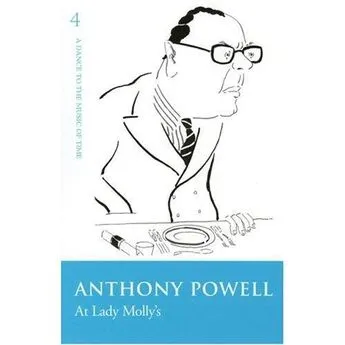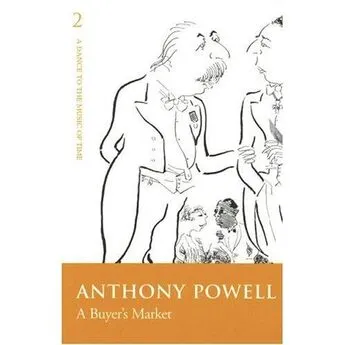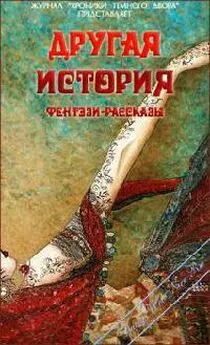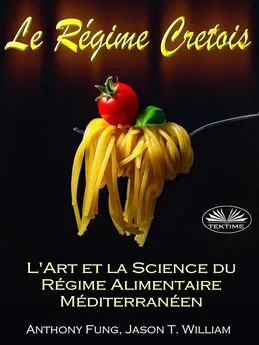Anthony Powell - At Lady Mollys
- Название:At Lady Mollys
- Автор:
- Жанр:
- Издательство:неизвестно
- Год:2005
- ISBN:нет данных
- Рейтинг:
- Избранное:Добавить в избранное
-
Отзывы:
-
Ваша оценка:
Anthony Powell - At Lady Mollys краткое содержание
A Dance to the Music of Time — his brilliant 12-novel sequence, which chronicles the lives of over three hundred characters, is a unique evocation of life in twentieth-century England.
The novels follow Nicholas Jenkins, Kenneth Widmerpool and others, as they negotiate the intellectual, cultural and social hurdles that stand between them and the “Acceptance World.”
At Lady Mollys - читать онлайн бесплатно полную версию (весь текст целиком)
Интервал:
Закладка:
I followed him to the first floor; and into a double drawing-room in which eight or nine persons were standing or sitting. A general though never precisely defined suggestion of chinoiserie, sustained by a profusion of Oriental bowls and jars, pervaded the decoration. Some of the furniture was obviously rather valuable: the rest, gimcrack to a degree. Pictures showed a similar variation of standard, a Richard Wilson and a Greuze (these I noted later) hanging among pastels of Moroccan native types. A dark, handsome woman, now getting a trifle plump by the emaciated standards of the period, came towards us.
‘Why, Chips,’ she said. ‘Here you are at last. We thought you would be earlier.’
‘Couldn’t get away, Aunt Molly,’ said Lovell. ‘This is Mr. Jenkins. He and I slave away writing films together.’
‘What will you drink?’ she asked. ‘Teddy, get them something to drink quickly. They must be in dire need.’
She smiled at me as if she were rather proud of that last phrase. Jeavons now appeared before us and began to make some rather hopeless gestures in the direction of several bottles and decanters standing on a table at the far end of the room. It was at once apparent that he was something left over from the war. I found it almost impossible to believe that he would so much resemble the mental picture conjured up by Lovell’s earlier description of him. Like one of those mammoths — or, in Jeavons’s case, somewhat less gigantic form of primeval life — caught in a glacier and physically preserved into an age when his very kind was known only from fossilised bones, or drawings on the walls of subterranean caves, he somehow managed to look just as he must have looked in 1917: hardly a day older. Perhaps a better simile to indicate the effect of remoteness he gave, standing there with a vacant expression and both hands in his pockets, would be that of some rare insect enclosed in amber. He wore a minute Charlie Chaplin moustache, his dark, shiny hair, in which there was a touch of red, rolling away from his forehead like the stone locks of a sculpted head of Caracalla.
At this point I became suddenly aware that at least one of the guests present was already well known to me. This was my family’s old friend, Mrs. Conyers. Although I had not seen her at all recently, we had met from time to time — usually at intervals of several years — since the distant day when I had been taken to her flat and shown the scimitar. The last occasion had been the wedding of her daughter, Charlotte, to the lieutenant-commander. Evidently Mrs. Conyers had been dining with the Jeavonses. However, it appeared that she did not know them well, and, perhaps not greatly at ease in their society, she was clearly much relieved at finding, in myself, someone she knew of old. I was not sure that I myself was equally pleased, for, although I liked Mrs. Conyers well enough, I thought it preferable to explore new ground like the Jeavons house unobserved by old friends of my parents. However, nothing could have been less admonitory than Mrs. Conyers’s manner towards myself; if admonition properly defines the attitude threatened, when one is young, by the presence of old family friends.
In appearance Mrs. Conyers retained, no doubt from her childhood, the harassed, uncertain expression of those who have for many years had to endure close association with persons addicted to practical joking. Like the rest of her sisters, she must have suffered in no small degree from her father’s love of horse-play. One of six daughters, she had been regarded as ‘on the shelf’ by her parents when the General proposed to her. She herself had probably abandoned thought of marriage, because she was by then devoting most of her time to attending an elderly, intractable relation, Sybil, Lady Amesbury, whose memoirs 1 mentioned earlier. One of her father’s exploits had been recorded in this book, the occasion when Lord Vowchurch, in his younger days, had loosed half a dozen monkeys wearing tail-coats and white ties at an ambassadorial ball: a casual relic of innumerable similar anecdotes that have passed into oblivion.
Although never exactly handsome, Mrs. Conyers was not without a look of sad distinction. In public she deferred to her husband, but she was known to possess a will of her own, displayed in that foxy, almost rodent-like cast of feature, which, resembling her sister’s in its keenness, was not disagreeable. It was said that she had entirely reorganised the General’s life after he had left the army; and much for the better. When I went across the room to speak with her, she raised her eyebrows slightly to indicate, if not precise disapproval, at least a secret signal that she felt herself not altogether at home. The message read that she required any support she could get.
Lovell had made for a red-faced, grey-moustached, elderly man, who seemed, like Mrs. Conyers, to have been a member of the dinner-party. This person possessed a curiously old-world air, suggesting an epoch considerably more remote than the war-time span conveyed by his host’s outward appearance. Although not so old, he seemed to belong more, at least in spirit, to the vintage of General Conyers. I caught the words ‘Uncle Alfred’. Lovell called so many men uncle that one could not be sure how closely related to him, if at all, any of them might be. This uncle acknowledged Lovell’s greeting fairly curtly. There was something familiar about that red face, white moustache and muffled, uneasy manner. Then I realised that he was Tolland, that lonely, derelict character accustomed to frequent the annual Old Boy dinner of Le Bas’s house. In fact, I had myself once sat next to Tolland at one of those functions: an occasion when I had made up my mind never to attend another.
It was a surprise to find Mrs. Conyers and Tolland here, but there was no reason why they should not both be friends of Lady Molly Jeavons. Mrs. Conyers was now engaged by her hostess, and led up to a swarthy young man, also wearing a dinner-jacket, who was standing by the gramophone turning over the pages of a book of records. They all began to talk French together. At that moment my eye caught Tolland’s. He stared back, not without a certain apprehension in his look. Then he cleared his throat and advanced towards me.
‘I didn’t see you at the Le Bas dinner this year,’ he said.
He spoke with reproach, as if to mention such a breach of faith was an embarrassing duty his conscience laid upon him. In these surroundings, evidently his own ground, I felt less ability to cope with his peculiarities than at the Le Bas dinners. It seemed better to conceal the decision never to attend another one.
‘I didn’t manage to get there.’
‘It went off all right,’ said Tolland slowly, as if ghastly failure had been a matter of touch and go. ‘I always accept when the card comes round. It makes a pleasant evening. Got to keep in touch. Of course Le Bas always says that in his speech.’
Molly Jeavons, after talking for a minute or two with Mrs. Conyers and the young man with the black moustache, now rejoined Tolland and myself.
‘I couldn’t keep it up any longer,’ she said. ‘French is too exhausting. My governess said I was the worst pupil she’d ever had at the irregular verbs. All the same, I wanted to hear if there was anything new about Theodoric.’
She pointed her finger at me.
‘Is he another of your relations, Alfred?’ she asked.
Her tone suggested that potential relationship with Tolland might explain everything: why I had come to the house: why I looked as I did: why we were talking together. I attempted to reduce my appearance to something as negative as possible, so that no one might be unduly committed by the enquiry, which had thrown Tolland into an appalling access of embarrassment.
‘Really, I believe you have more relations than I have myself,’ she went on. ‘My grandfather had ninety-seven first cousins, and he was only three up on my grandmother on my mother’s side.’
‘No — no — no,’ said Tolland, hurriedly. ‘At least I don’t think we are, are we? Never know — perhaps I oughtn’t to have been so definite — quite on the cards, I suppose, as a matter of fact. Shouldn’t speak hastily about such things. Certainly got a lot of ’em. Some people might think too many, as you say, Molly. No — no — no. Perhaps you can tell better than me. Are we related? No? Thought not. Always try to keep track of ’em. Hard to manage sometimes. Go abroad and get married and get divorced and into debt, glad to see the back of ’em sometimes. But where you and I meet is at the Le Bas dinner. That’s where we meet.’
He gasped a bit after all this, as if not only breathless from speaking at such length, but also overcome with confusion at the predicament into which he had been thrown by the question. Yet, even in spite of this floundering, he seemed to feel himself on much surer ground in this house than at our previous meetings. He might be temporarily at a disadvantage here with his hostess, even on guard against attack from her (a minute or two later I found he had good reason to fear that), but at least his credentials were known and freely accepted in the Jeavons drawing-room. I was by no means sure that I felt myself equally at ease. The atmosphere of the house was not exactly restful. The other persons who made up the party were nondescript enough, but there was also the feeling that one had penetrated the outskirts of a secret society. Mrs. Conyers had seemed as subject as myself to this sense of disquiet. Perhaps it was merely that she had passed on to me her own agitation; for I was sure she was agitated about something. Lovell had certainly tried to prepare me for an unusual household, but to absorb such antecedent descriptions is never easy. Molly Jeavons’s noisy, absolutely unrestrained directness of manner was of a kind that suggested both simplicity of nature and certainty of her own position: both characteristics that can stimulate that streak of social cruelty that few lack. There could be no doubt that Tolland was showing signs of preparing himself for some onslaught. The reason for his fears soon became apparent.
‘I didn’t know you ever met anyone but your own relations, Alfred,’ she said, evidently determined to pursue that subject. ‘You always pretend to me that you never go anywhere. I only got you here tonight because you wanted to hear from her own lips Mrs. Conyers’s story about the Empress Frederick. I believe your quiet evenings at home are all make-believe and that you live a disgracefully fast life — the gayest of gay bachelors.’
Tolland denied this imputation emphatically. He did not seem in the least flattered at the suggestion that he might be, so far as social life was concerned, a dark horse. He was patently without the smallest personal vanity, open or secret, on the matter of cutting a dash in life. He came at last to the end of his protests.
‘Alfred was talking about his family all through dinner,’ said Molly Jeavons, turning once more to me. ‘You know they are all in trouble — every blessed one of them.’
‘It’s too bad of you to say that, Molly. I only asked for your advice about some of my nephews and nieces.’
Now he sounded thoroughly aggrieved, although at the same time unwilling to withdraw voluntarily from a conversation devoted to his relations.
‘What’s the matter with the Tollands this time, Aunt Molly?’ asked Lovell.
He had been making a tour of the room, ending with our group.
‘Oh, it’s Erridge again,’ she said.
She spoke as if the question were hardly worth asking.
‘What’s Erridge’s latest?’
Lovell, for his part, spoke as one expecting to hear an enjoyable piece of gossip about a character always to be relied upon to provide a good story.
Читать дальшеИнтервал:
Закладка:








